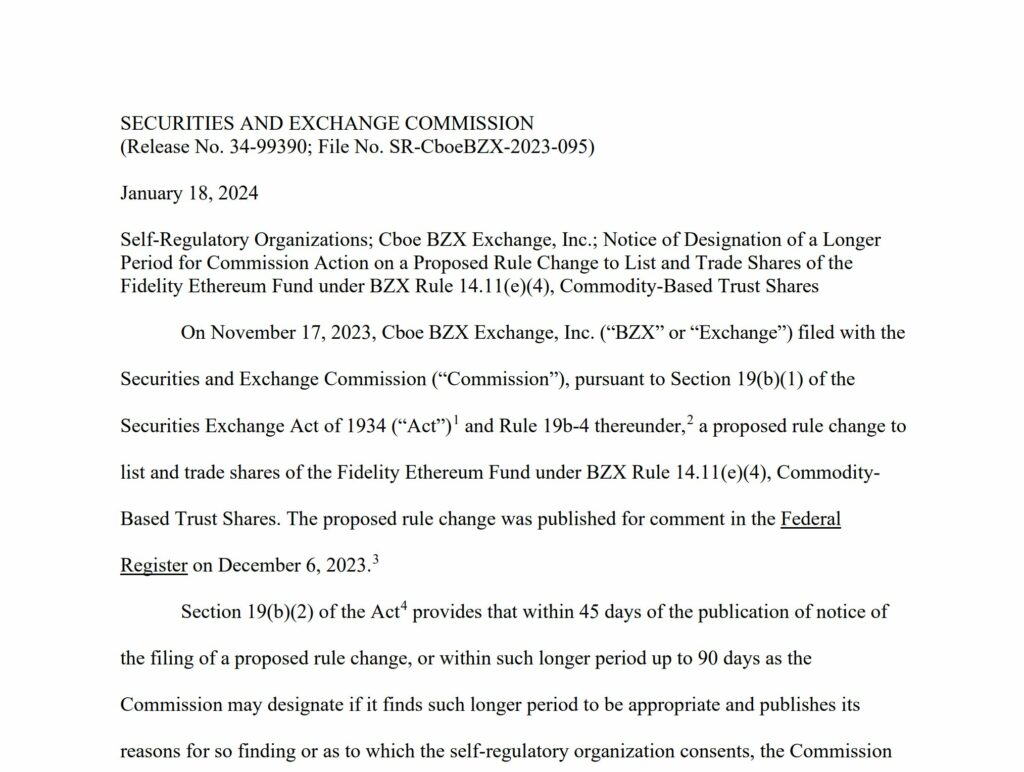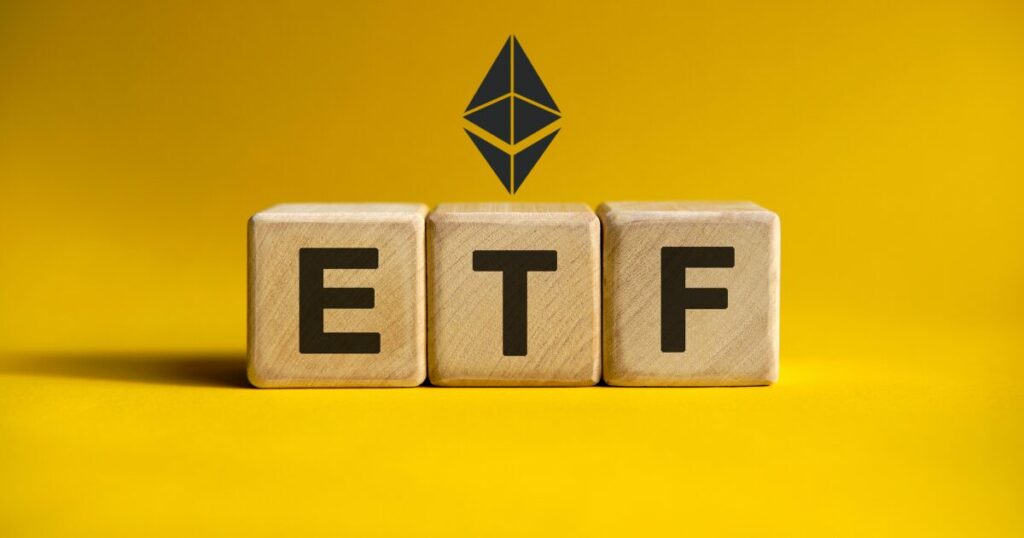The U.S. Securities and Exchange Commission (SEC) has opted to postpone its decision on Fidelity’s Ethereum Exchange-Traded Fund (ETF), extending the deadline to March 5, 2024. The delay comes in the wake of legal issues involving Coinbase, accused by the SEC of selling unregistered securities. As the regulatory landscape evolves, the fate of Fidelity’s Ethereum ETF awaits a final call, expected in May, amid broader considerations of similar ETFs.
SEC Postpones Decision on Fidelity’s Ethereum ETF; May Deadline Anticipated

The SEC’s decision to defer Fidelity‘s Ethereum ETF, tradable on the Cboe BZX exchange, was announced on January 18, with the original deadline of January 20, 2024, now pushed to March 5, 2024. Bloomberg’s ETF analyst, James Seyffart, foresees the final verdict on Fidelity’s and other Ethereum ETFs, including VanEck’s, converging in late May. The delay, while expected, reflects the SEC’s approach to deciding on similar ETFs simultaneously.
Read more: Coinbase vs. SEC: A Beanie Baby Analogy
Ethereum ETFs Face Uncertainty Despite Bitcoin ETF Approvals

Despite the SEC approving Bitcoin ETFs on January 10, the success of Bitcoin ETFs doesn’t guarantee a parallel approval for Ethereum ETFs. Fidelity and other firms received approval for Bitcoin ETFs earlier this year, but the regulatory landscape for Ethereum remains uncertain. The ongoing legal battle between the SEC and Coinbase, where the exchange argues its tokens are not securities, adds complexity to the broader regulatory discussions.
Read more: Fidelity Forecasts DeFi and Stablecoin Boom in 2024 with Expected Fed Cuts
Conclusion
As the SEC navigates the evolving landscape of cryptocurrency regulations, the delay in deciding on Fidelity’s Ethereum ETF underscores the complexities and uncertainties surrounding digital asset classifications. With the final call expected in May, the outcome will significantly impact the fate of Ethereum ETFs and contribute to shaping the regulatory framework for cryptocurrencies. Meanwhile, the legal battle between the SEC and Coinbase injects additional nuances into the broader discourse on the classification of digital assets in the financial landscape.


![Pionex Review ([currentyear]): Trading Bots, Fees, and Pros & Cons 8 Pionex Review Featured Image](https://coinwire.com/wp-content/uploads/2023/08/pionex-review-featured-image-1024x683.jpg)
![Best Crypto Exchanges in UAE and Dubai to Buy Bitcoin ([currentyear]) 9 Best Crypto Exchanges In Uae And Dubai Featured Image](https://coinwire.com/wp-content/uploads/2024/01/best-crypto-exchanges-in-uae-and-dubai-featured-image-1024x683.jpg)
![Cardano vs Solana ([currentyear]): Is Cardano or Solana better? 10 Cardano Vs Solana Featured Image](https://coinwire.com/wp-content/uploads/2023/06/cardano-vs-solana-featured-image-1024x683.jpg)
![Paybis Review ([currentmonth] [currentyear]): Is It Safe and Legit? 11 Paybis Review Featured Image](https://coinwire.com/wp-content/uploads/2024/05/paybis-review-featured-image-1024x683.jpg)